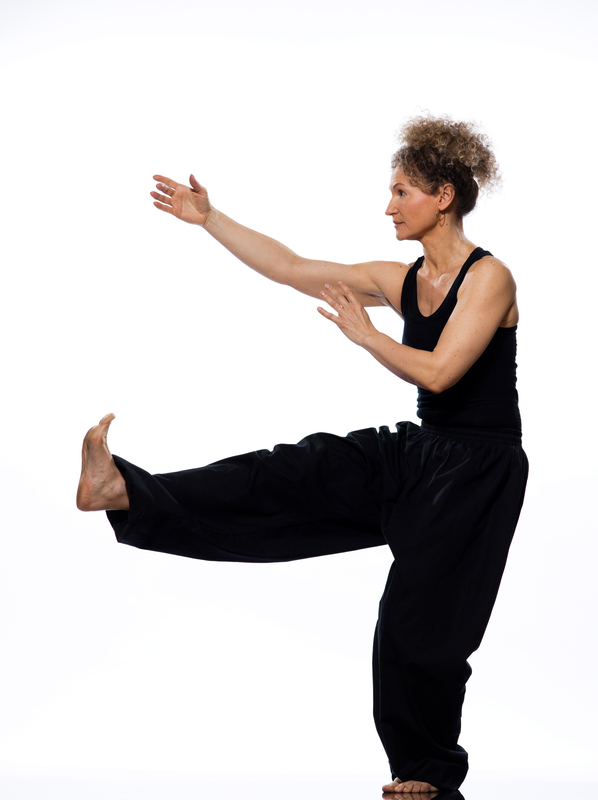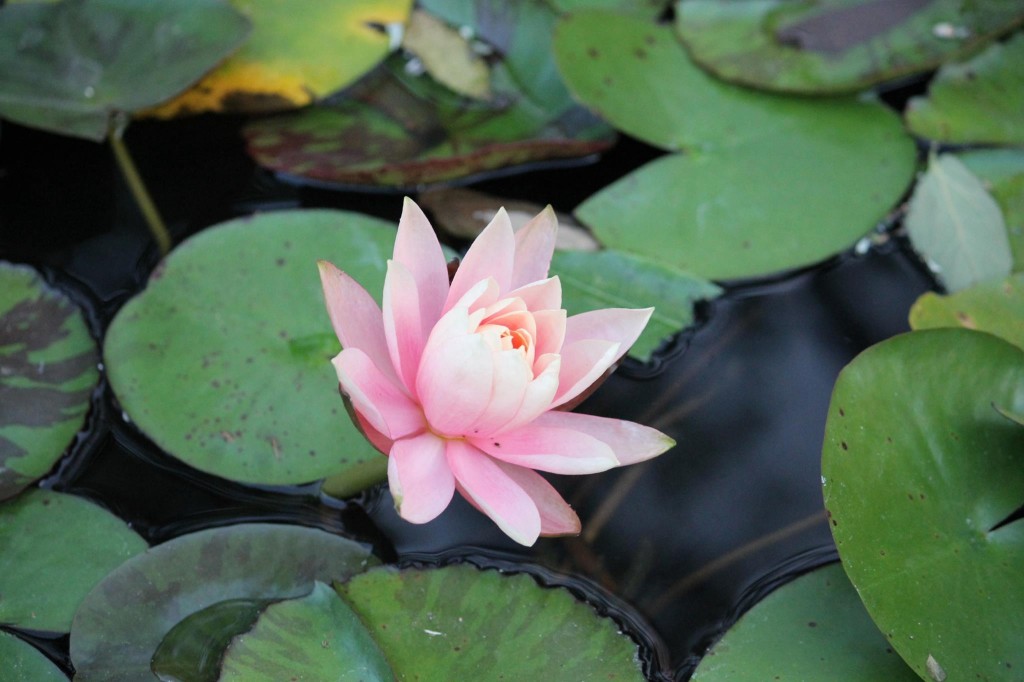Wednesday Bubble: No mystique, just perseverance
 Time for another menopause downer…followed by some good news! First the downer: declining levels of estrogen during menopause tend to reinforce a decline in the body’s ability to naturally metabolize blood fats and its ability to fight off the ravages of oxygen-free radicals, you know, free roaming oxygen ions that can wreak havoc on the immune system. The result is often an upsurge in heart and other metabolic diseases. You can read more about those conditions here.
Time for another menopause downer…followed by some good news! First the downer: declining levels of estrogen during menopause tend to reinforce a decline in the body’s ability to naturally metabolize blood fats and its ability to fight off the ravages of oxygen-free radicals, you know, free roaming oxygen ions that can wreak havoc on the immune system. The result is often an upsurge in heart and other metabolic diseases. You can read more about those conditions here.
Okay, so the good news: it appears that Tai Chi training may help increase the body’s antioxidant defenses in both pre- and post-menopausal women! In fact, in a study published a few years ago in the Journal of Aging Research, investigators noted a marked change in antioxidant markers normally related to aerobic exercise, as well as a decline in a marker for heart disease risk.
For those of you unfamiliar with Tai Chi, it is an ancient Chinese martial art form that combines breathing with smooth, gentle postures. It may look fairly tame, however, having studied Tai Chi for a short period of time, I can assure you that it’s damn hard. Moreover, despite appearances, it is a weight-bearing exercise that not only strengthens muscles but also is on par with moderate intensity aerobic exercise. It has also been shown to improve mobility, flexibility and balance, improve sleep and overall wellbeing, and even enhance the circulation of blood through the smallest of blood vessels.
I’ve written about the effect of breathing on stress and the body’s stress markers. However, it appears that when Tai Chi is combined with slow and deep breathing exercise (i.e. 6 breaths per minutes) overall benefits are boosted. Indeed, two, 75-minute Tai Chi sessions a week combined with two hours of at home practice appeared to do just what the doctor ordered. These sessions involved 10 min of warm up/stretching, 60 minutes of Tai Chi (45 minutes 18-posture Tai Chi and 15 min Tai Chi Fan Style) and an initial check in period. In addition to the slow, rotational, fluid movements (1.5 minutes per motion), the women participating in the study were taught to control their breathing. Over the eight weeks, they also underwent blood and had physical fitness evaluations.
The findings? Tai Chi training improved balance, flexibility and leg extension strength in all of the women regardless of menopausal status. LDL cholesterol was also lowered. And, as mentioned, markers for antioxidant activity increased significantly while a marker for heart disease risk decreased.
Tai Chi is low impact and is especially valuable for women who may not be physically able to boost their aerobic routines. What’s more, once mastered, it can be practiced in the privacy of one’s own home. Once again, the mind-body connection proves to be pretty darn cool and important to health and wellness! This time, it might take some practice but perseverance rules the day! “There is no mystique to Tai Chi Chuan. What is difficult is the perseverance. It took me ten years to discover my chi, but thirty years to learn how to use it. Once you see the benefit, you won’t want to stop.” – Ma Yueh Liang
Read MoreWednesday Bubble: cultivate your inner lotus
[Photo credit: Priya Ramesh, Coorg India. 2013]
On Monday, I shared information about the benefits of mindful meditation and being present and how they positive affected stress and the hormone cortisol. I cannot stress the importance of incorporating stress busters into your life; not only is your mental health at stake but the risks to your overall health are numerous. If meditation is not your thing, there are other strategies to consider, including yoga, Tai Chi, acupuncture and deep breathing. There is also Qigong.
Qigong is a Chinese practice harkening back more than 4,000 years. In many ways, it incorporates the best of several strategies, including alignment of movement and breath, meditation and yoga (strength, flexibility). My friend and colleague, Jeri Hemerlein, teaches a female-specific form of Qigong at the Yoga Center in Columbia, MD. Known as Radiant Lotus Qigong, Jeri describes it as a flowing form combining ancient Chinese and Tibetan techniques to health issues unique to women. Radiant Lotus Qigong uses the lotus flower as a metaphor for female resilience and flexibility. The movements open the body’s energy, gently stretching and releasing tension from muscles, joints and spine while waking up the immune system. The form seeks to enhance the whole body health of women from menstruation to post menopause, while supporting the Divine Feminine nature and helping the woman return to an innate state of loving compassion, wisdom and inner strength during times of stress and intense emotions. The form was created by Advance Qigong practitioner Daisy Lee, who developed it after studying with various Qigong teachers who were able to successfully address women-specific issues through original and individual forms.
If you visit Daisy’s website, you can learn more. Or, if you are local to the DC/MD area, you can attend a workshop that I am blessed to be giving with Jeri on April 23, 2013 at 6:30 pm in Annapolis. ‘Cultivate Your Inner Lotus: Menopause, Stress & Qigong” aims to help you gain a better understanding of stress during menopause and provide you with specific techniques to address it on your own. I hope that you’ll consider joining us.
Cultivating your inner lotus may be the best thing you can do for yourself.
Read More
Every breath you take
We know that deep, focused breathing is a great stress buster, easy to practice and even easier to learn. However, it looks as though the breath you exhale may also be a harbinger of the very stress that you are letting go of. In fact, UK researchers have discovered that the breath has certain markers that may allow it to become a stress detective, if you will.
These markers are a mouthful, literally! Known as 2-methylpentadecane and indole, these very compounds appeared to increase following a stress exercise in 22 young adults who offered their breath for science! Using a scientific technique to analyze breath samples when the volunteers were calm and then stressed, and also measuring heart rates and blood pressures, the researchers were able to identify six compounds in breath related to stress but only the two mentioned above increased. What’s more, the stress response — faster breath and increased heart rate — appeared to change the normal composition of the breath.
I never thought that I’d be writing about breath profiling on this blog but it fascinating. Clearly, changes in breathing patterns have effects — either positive or negative — in the body. But would it be possible to develop a simple test to help suss out underlying stress, the type that over time, can lead to burnout, depression and of course, illness?
Only time will tell and larger studies are needed. But the very breath you take might be equal to the stress you make.
Meanwhile? Inhale. Hold. Release. Every breath you take matters.
Read MoreIt’s not weight gain! It’s a shapeshifter!
[Copyright: Doug Savage. Many thanks for use of this cartoon. Who doesn’t love a chicken?! Show some love… www.savagechickens.com]
In literature, shapeshifting takes place when an individual finds her figure involuntarily changed by someone or something else, menopause for example! For women in midlife in particular, weight gain often becomes a primary concern. But it’s not just any weight gain — it’s the spare tire in the midsection, the sudden belly that seems to appear out of nowhere, that causes the most distress.
If you go back through the archives on weight gain during menopause, you’ll discover that the midsection bulge is a personal pet peeve. And while research has shown the mindful meditation, getting up from your chair during the workday, biking and perhaps even isoflavones may make a difference, a recent review in Climacteric journal goes one step further towards clarifying the ‘why.’
The findings may interest you. For example, weight gain itself does not appear to be affected by hormonal changes during menopause. “It’s a myth that menopause causes women to gain weight” says the leading review author Professor Susan Davis from Monash University. Rather, she says that “it’s really just a consequence of environmental factors and aging,” (i.e. absolute weight gain as we age is influenced by non-hormonal factors, such as low activity levels, previous pregnancies, family history of obesity and even the use of certain antidepressants or having undergone chemotherapy). However, hormones — namely the fall in estrogen — cause the fat to deposit itself in the belly (oh, joy!). In fact, data suggest that during perimenopause, there is a rapid increase in fat mass and redistribution of this fat to the abdominal area, leading to an increase in total body fat.
Whether or not you call it weight gain or shapshifting, the result of this excess weight goes well beyond physical appearance and self esteem. We know that excess weight, especially belly fat, can lead to metabolic syndrome and other serious issues. And it’s really difficult to get rid of once it decides to rest in the abdominal area. Still, if you don’t want to go the HRT route (which may help prevent the increase in abdominal fat), there’s really only one solution: diet and exercise. And more diet and exercise.
Frustrating, isn’t it? I’d like a do-over on the shapeshifting thing. Right now? The Beast is looking pretty darn attractive!
Read More
Got Stress?
Did you know that April is Stress Awareness Month? All I can say is that maybe some of us need an entire year! That’s why I as devoting today to stress busting posts with tips aimed at ameliorating some of that stress out of your life, and in turn, ameliorating some of the more unpleasant parts of the transition. And while I can’t make any guarantees, I can confirm that learning to relax and let go can pave the way to wellbeing.
A few highlights from the Flashfree archives await!
From December, 2011: Mindfulness, meditation and stress. Learning to bring on the relaxation response can go a long way towards health and happiness.
From November, 2011: Yoga, insomnia and sleep quality. Don’t know about you but when I don’t sleep well, I react in ways that are not always beneficial. Apparently, yoga not only promotes better sleep patterns, but also, helps to boost stress resistance.
From March, 2011: Try a little mindfulness. It appears that by breaking down the components of one’s experience, you may be better equipped to handle a variety of situations. And although this particular information applies to hot flashes, the reality is that it is likely useful in all aspect of life.
From July, 2009: Why I bake. Sometimes simply incorporating pleasurable activities into our lives can help alleviate daily stressors. One of the web’s top social researchers says that baking is her path towards relaxation.
From September, 2009: The best medicine. Want to feel better? Laugh…to the point of tears.
From August, 2008: L’Chaim. Women gravitate towards ‘tending and befriending.’ No wonder; social support can go a long way towards alleviating stress.
What tricks of the relaxation trade work best for you? Care to share them?
Read More








